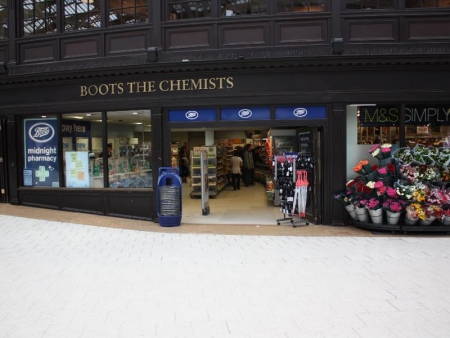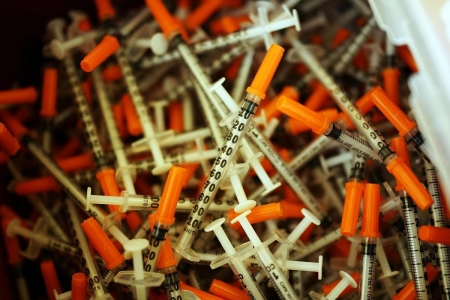Fears Over Loss of Drug Addicts' Glasgow Needle Exchange as HIV Outbreak Spreads. 21st December 2017.
USE of needle exchanges by drug addicts has plummeted since one of Scotland's busiest units closed, amid concerns the move is contributing to the growth of an HIV outbreak.
New cases in Paisley are the first outside Glasgow in the outbreak which has seen more than 100 people diagnosed with HIV in the last three years.
The infections are centred on a population of chaotic drug users, but public health chiefs fear only about half are receiving treatment – meaning the outbreak is effectively uncontrolled.
New figures confirm the closure in September of a needle exchange based in Glasgow Central Station is making the problem worse.
The closure of the service provided by Boots in the station was forced by Network Rail, which owns the station, against the wishes of the NHS, police and charities.
The figures show that while some of those who used the Central Station service appear to be making use of other needle exchanges, hundreds are not – meaning fewer people receiving medical input and in all likelihood an increase in dangerous sharing of injecting equipment.
NHS GGC figures show that the number of people taking advantage of needle exchange services in the area has dropped by 20 per cent, or 367 people. The number of needles provided has dropped by six per cent, with around 2,000 fewer needles given out.
Health officials, Boots, Network Rail and the Scottish Government have been in urgent negotiations since the closure and it is understood an announcement could be made about the future of the service today.
In September Public Health minister Aileen Campbell, said the Central Station needle exchange was an important public service. "I have expressed my concern about this decision, it will potentially exacerbate what is quite a significant problem for the city," she told the Scottish Parliament.
Network Rail is believed to have insisted the service close after an incident in which a drug user overdosed in the station and another when cleaning staff discovered discarded injecting equipment in toilets.However backers of the service say the level of incidents at the station is not high given its location and prominence as a major transport hub. Meanwhile most customers were unaware of the presence of the needle exchange, which has been there since 2016, and was set up in order to help counter the HIV outbreak. In a survey of passenger concerns about policing on the Scottish rail network, drug use and dealing was only tenth in the list, behind issues such as terrorism, anti-social behaviour and ticket fraud.
If an agreement cannot be reached to reopen the service, other options being considered by public health staff include a mobile bus or van which would offer needles and other harm-reduction services. But there are concerns its 'opening hours' would be inadequate and drug users might avoid it because of the stigma attached.
The loss of the service at Boots leaves public health efforts to counter the HIV outbreak in disarray after the Lord Advocate blocked plans to open the UK's first safer injecting pilot, which would have provided a city centre facility where users could take street drugs under medical supervision.This article was taken from the Herald Scotland website.
-
Boots at Glasgow Central Station hosted the needle exchange service
Used syringes are discarded at a needle exchange clinic where users can pick up new syringes
References
Original article: ...


